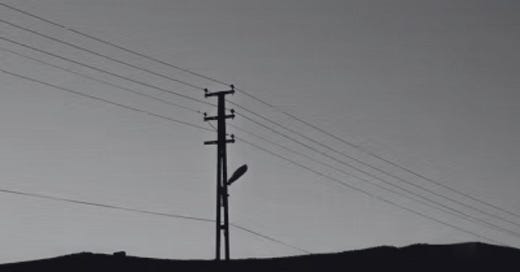I’ve been reading about ethics lately — not the kind rooted in rules or moral absolutes, but something more human and open-ended. Ethics through an existentialist lens. I brushed up against some of these ideas back at uni, but they were never a major focus. Still, something about them lingered. And lately, they’ve been tugging at my attention again — quietly, persistently.
This piece marks the start of a loose, evolving series (as part of Substack Uni) where I’ll explore ethical thought through different existentialist thinkers. I’m imagining one edition each month dedicated to a particular philosopher, with other philosophical or reflective pieces woven in between.
But for now, I just want to start simple — offering a kind of gentle entry point, before diving deeper into specific philosophers..
Existentialist ethics emerged in the 19th and 20th centuries as a response to Enlightenment-era philosophies — especially those of Descartes and Kant — which presented human beings as primarily rational agents. The Enlightenment gave us a tidy, logical view of the self: rational, knowable, universal. But existentialism pushed back.
For thinkers like Kierkegaard, Nietzsche, and later Sartre and Beauvoir, that picture of the human being felt flat — abstracted from life, disembodied, too neat. They argued that we aren’t timeless rational minds; we’re real, concrete individuals, shaped by context and experience. Messy. Situational. Becoming, not fixed.
So ethics, from this perspective, isn’t something we can deduce from reason alone. It’s not about applying a universal formula. It’s about how we move through the world — how we act, respond, struggle, and grow in the particular circumstances we find ourselves in.
If we were purely rational, the existentialists point out, we’d all be more or less the same. But we’re not. Rationality, while useful, doesn’t capture the richness of human life — the contradictions, the hesitations, the gut feelings and grief and joy and doubt. Freedom, in this view, is what makes ethics possible. Because we are free to choose, ethics becomes a personal and evolving project.
Existentialism doesn’t hand you a list of rules to follow. Instead, it asks you to pay attention to your life — to the decisions you make, and the kind of person those decisions shape you into. Ethics becomes less about being "good" and more about becoming someone you can live with. Someone you recognise.
Sartre put it famously: existence precedes essence. We aren't born with a ready-made identity or moral code. Who we are is something we have to build — actively, continuously. We become ourselves through what we do. And yes, that can feel overwhelming. But it can also feel liberating.
Of course, existentialism doesn’t pretend that we all have the same range of choices. It’s not naïve to power or privilege. Our histories, our backgrounds, our environments — all of that shapes what’s possible. But still, within those constraints, we choose. And in choosing, we declare what matters to us.
Importantly, existentialist ethics isn’t just personal. Sartre reminds us that our choices ripple outward — when we act, we don’t only define ourselves, we express a vision of how a person ought to act in our situation. So even if we feel alone in our decisions, we’re never truly isolated. Our freedom is relational.
To live ethically, for the existentialist, is to live in good faith — to acknowledge our freedom rather than run from it. To take ownership of our decisions rather than hide behind roles or systems that do the choosing for us. It means living honestly, even when that honesty is uncomfortable.
This kind of ethics doesn’t promise clarity or perfection. It’s not about aligning yourself with eternal truths. It’s about engaging, sincerely, with what’s in front of you. With your projects, your relationships, your contradictions. You’re not defined by your success or failure — you’re defined by your effort to live meaningfully.
So perhaps existentialist ethics is less a moral system and more a way of being. A call to live with intention. To treat your life as something unfolding, not something to be proven. To resist the comfort of certainty, and instead move forward — freely, imperfectly, authentically.
My newsletters are all free to read (I gave up making them paid because I want everyone to read everything!) But please considering supporting a struggling 9-5 girl with just one iced latte!




